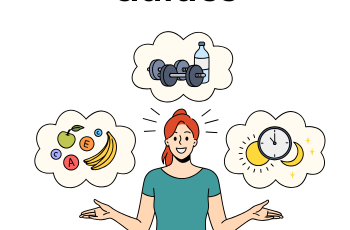In recent years, fasting has surged in popularity, embraced by many for its potential health benefits and its ancient roots. Originally a survival mechanism, it now attracts those seeking better health and wellness.
From improved blood sugar levels to weight management, the benefits of fasting are numerous.
However, understanding what to consume and avoid during fasting is crucial to maximize these benefits.
Contents
- 1 Water: Your Best Friend
- 2 Herbal Teas for a Soothing Experience
- 3 Coffee: To Drink or Not?
- 4 Bone Broth: Nutritious Option
- 5 Supplements: What to Consider
- 6 Foods to Avoid: Sugar and Sweeteners
- 7 Processed Foods: A Big No-No
- 8 Alcohol: Why It’s a Bad Idea
- 9 Dairy Products: To Skip or Not?
- 10 Artificial Additives: Hidden Dangers
- 11 Quick Reference Table
- 12 Fasting Myths Debunked
- 13 Tips for Successful Fasting
- 14 Conclusion: Key Takeaways
Water: Your Best Friend
During fasting, staying hydrated is non-negotiable. Hydration is vital because it supports cellular functions and helps prevent dehydration, which can lead to dizziness and headaches. Water also plays a crucial role in regulating blood pressure and maintaining metabolic health, making fasting safer and more effective.
Drinking water offers numerous benefits, including maximizing physical performance and enhancing brain function. It aids in preventing headaches and constipation, while also supporting weight management.
According to the U.S. National Academies of Sciences, Engineering, and Medicine, men should aim for about 15.5 cups (3.7 liters) of fluids daily, while women should target around 11.5 cups (2.7 liters).
Remember, water is your ally in fasting. Stay hydrated to unlock the full potential of your fasting journey.
Herbal Teas for a Soothing Experience
When fasting, hydration can come in various forms, and herbal teas are a delightful option. Fasting-friendly teas like chamomile, peppermint, and ginger offer a soothing experience without breaking your fast. These teas are caffeine-free, ensuring they don’t disrupt your fasting cycle.
Herbal teas provide numerous benefits, such as aiding digestion, reducing stress, and promoting relaxation. Chamomile is known for its calming effect, peppermint can assist with digestive issues, and ginger may help reduce inflammation and nausea.
However, it’s crucial to be mindful of potential downsides. Some herbal teas may cause allergic reactions or interact with medications. Always check ingredients and consult with a healthcare professional if you have any concerns.
Incorporating herbal teas into your fasting routine can enhance your experience, offering both hydration and health benefits.
Coffee: To Drink or Not?
Deciding whether to enjoy coffee while fasting involves a balance of benefits and drawbacks. On the positive side, coffee can enhance metabolic health, potentially lower the risk of Type 2 diabetes, and boost cognitive functions.
It may also promote autophagy, aligning well with fasting goals. However, caffeine can trigger an insulin response, disrupting the fasting state and possibly leading to cravings and weakness.
For those who choose to indulge, it’s best to stick to black coffee to avoid extra calories. Keep it to one cup early in the day to prevent sleep disturbances.
Ultimately, the choice to drink coffee should reflect personal health goals and tolerance to caffeine. Consulting with a healthcare professional can provide tailored advice to optimize benefits.
Bone Broth: Nutritious Option
Bone broth is a powerhouse of nutrients, making it an excellent choice for those engaging in longer fasting periods. Packed with minerals, collagen, and amino acids, it supports gut health, joint function, and skin vitality.
Not only does bone broth provide essential electrolytes, but it also helps maintain muscle mass during fasting, ensuring your body receives vital nutrients without breaking your fast.
Incorporating bone broth into your fasting routine is simple. It can be consumed warm as a comforting beverage or used as a base for soups if you’re transitioning into or out of a fast.
Ensure it’s homemade or a high-quality store-bought option with no added sugars or artificial additives. This nutritious broth not only keeps you hydrated but also supports your body’s needs during extended periods.
Supplements: What to Consider
Incorporating supplements into your fasting routine can be crucial for maintaining nutrient levels and supporting overall health. During fasting, deficiencies might arise due to restricted food intake, making supplements a helpful ally. Vitamin pills and capsules are generally safe and won’t disrupt insulin levels.
For those needing metabolism and energy support, water-soluble vitamins, like vitamin C, and amino acids, are recommended.
However, before jumping into any supplement regimen, consulting with a healthcare professional is essential. They can provide personalized advice, ensuring supplements align with your specific health needs and fasting goals.
This professional guidance helps in avoiding potential health risks, especially if you have underlying conditions or are taking medications. Stay informed and empowered on your fasting journey!
Foods to Avoid: Sugar and Sweeteners
When fasting, sugar can be a major disruptor. Consuming sugar spikes blood glucose levels, leading to an insulin response that can break your fast. This disruption is particularly concerning for those managing diabetes, as prolonged high blood sugar can result in serious health complications like heart disease and nerve damage.
Moreover, some sweeteners can also interfere with fasting by triggering digestive responses or impacting metabolic pathways.
To maintain the benefits of fasting, consider alternatives like stevia, a natural sweetener that doesn’t significantly raise insulin or blood sugar levels. It offers a zero-calorie option without derailing your fasting goals. However, moderation is key, and it’s vital to choose products made with pure stevia extract to avoid unwanted fillers.
By opting for healthier alternatives, you can enjoy a sweeter experience without compromising your fast.
Processed Foods: A Big No-No
Processed foods often contain artificial additives, preservatives, and unhealthy fats that can wreak havoc on your fasting goals. These foods can trigger insulin spikes, disrupt metabolism, and lead to cravings that are hard to resist.
Additionally, consuming processed foods during fasting can negate the health benefits of fasting by introducing unnecessary calories and chemicals into your system.
For a more successful fasting experience, opt for whole, unprocessed foods. Fresh fruits and vegetables, lean proteins, and whole grains provide essential nutrients without the added sugars and unhealthy fats found in processed options.
Incorporating these healthier alternatives not only supports your fasting efforts but also enhances overall well-being, allowing you to reap the full benefits of your fasting regimen.
Alcohol: Why It’s a Bad Idea
When fasting, alcohol should be off the menu. Consuming alcohol can disrupt the fasting state by affecting liver function and blood sugar levels.
It can also lead to dehydration, a common concern during fasting, and impair judgment, making it harder to stick to your fasting goals.
Moreover, alcohol consumption comes with its own set of health risks, such as liver damage, increased risk of addiction, and negative effects on mental health. These risks are amplified when combined with the physical stress of fasting.
Instead of reaching for a drink, consider non-alcoholic alternatives like herbal teas or sparkling water with a splash of lemon or lime. These options keep you hydrated and support your fasting journey without the unwanted side effects of alcohol.
Dairy Products: To Skip or Not?
Dairy products can be a controversial topic when it comes to fasting. Consuming dairy may affect your fast due to the presence of lactose, a natural sugar that can trigger an insulin response. This insulin spike can disrupt the metabolic state you aim to maintain during fasting.
For those who are lactose intolerant, dairy can also cause digestive discomfort, further complicating your fasting experience. Fortunately, there are fasting-friendly alternatives to consider.
Non-dairy milk options like almond, coconut, or oat milk can be great substitutes, as they are typically lower in sugar and less likely to impact insulin levels.
Additionally, products like plain yogurt or kefir made from non-dairy sources are also viable choices, offering the benefits of probiotics without the lactose concern. Exploring these alternatives can help you maintain your fasting goals without compromising on nutrition.
Artificial Additives: Hidden Dangers
Artificial additives can pose significant dangers during fasting, as they often contain chemicals that may disrupt your body’s natural processes.
These additives can interfere with your fast by triggering insulin responses or digestive activity, which can negate the benefits of fasting such as autophagy and metabolic health. Many additives, like artificial sweeteners, can also lead to cravings, making it harder to stick to your fasting plan.
To avoid these pitfalls, it’s crucial to scrutinize ingredient labels carefully. Look out for names like aspartame, sucralose, and artificial colorants. Opt for whole, unprocessed foods as much as possible, and choose natural sweeteners that are less likely to disturb your fast, such as stevia.
By minimizing artificial additives, you can maintain the integrity of your fast and work towards your health goals more effectively.
Quick Reference Table
Navigating the dos and don’ts of fasting can be challenging. To help you stay on track, here’s a quick reference table outlining what to take and what to avoid during fasting. Making informed choices can enhance your fasting experience and health outcomes.
| To Take | To Avoid |
| Water | Sugar |
| Herbal Teas | Sweeteners with Calories |
| Stevia | Processed Foods |
| Bone Broth | Alcohol |
| Supplements (with advice) | Artificial Additives |
By focusing on these fasting essentials and avoiding potential disruptors, you can maximize the benefits of your fasting regimen. Remember, the key is to listen to your body and adjust your intake accordingly.
Fasting Myths Debunked
Fasting is surrounded by myths that often deter people from trying it. One common misconception is that it slows down your metabolism. On the contrary, it can actually boost metabolic function, promoting fat loss by shifting the body’s energy source from glycogen to stored fat.
Another myth suggests that it leads to muscle loss. However, studies indicate that it can preserve lean muscle mass and may even stimulate growth hormone production, essential for muscle growth.
Some worry about nutrient deficiencies, but fasting can enhance nutrient absorption and give the digestive system a much-needed rest.
Lastly, many believe it is only about weight loss, yet it also improves blood sugar control and reduces disease risk.
By understanding these facts, you can approach fasting with confidence and reap its numerous health benefits.
Tips for Successful Fasting
Embarking on a fasting journey requires some strategic planning to ensure success. Here are a few practical tips to guide you:
- Stay hydrated by drinking plenty of water and herbal teas to support your body.
- Gradually adjust your fasting periods to allow your body time to adapt.
- Incorporate nutrient-dense foods during eating windows to avoid deficiencies.
Mindfulness is key during fasting. Listen to your body: If you feel unusually fatigued or unwell, it might be time to reassess your fasting plan. Practice self-awareness to recognize your body’s signals and adjust accordingly. This approach not only supports physical well-being but also enhances the overall fasting experience.
By combining practical strategies with mindfulness, you can enjoy the numerous health benefits fasting has to offer.
Conclusion: Key Takeaways
Fasting, when done right, offers a myriad of health benefits. Staying hydrated with water and herbal teas is essential, while bone broth provides nutrients for longer fasts. Avoiding sugar, processed foods, and alcohol is crucial to maintaining the fast’s integrity. Understanding common fasting myths can help in making informed choices. Fasting can improve metabolic health, enhance cognitive function, and even support muscle preservation.
However, it’s important to approach this sensibly. Always listen to your body and consider seeking advice from healthcare professionals to tailor it to your lifestyle and needs. Making informed choices ensures a safe and effective experience, unlocking its full potential for health and well-being.

